
Stirfries, soba and ramen noodle recipes for one Signe Johansen
Fry up some onions, garlic, ginger and tofu mince and season with soy sauce, curry powder (or roux blocks) and chili oil. Chili oil sauce: In a bowl mix together Japanese sukiyaki sauce (or mushroom soy sauce), mushroom stir fry sauce, mushroom stock powder, rice vinegar doubanjiang and chili oil. Toss in noodles and add toppings of choice.
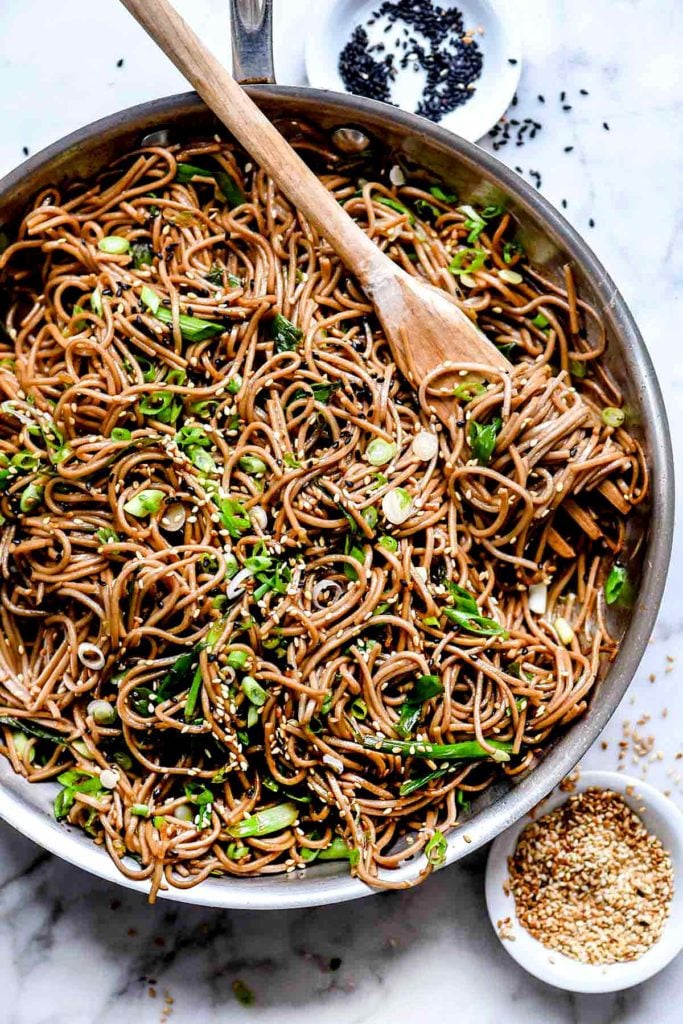
THE BEST Sesame Soba Noodles foodiecrush
In a medium saucepan, combine 2⅓ cups water, ⅓ cup mentsuyu (concentrated noodle soup base), and 1 Tbsp mirin and mix well. Bring the mixture to a gentle simmer over medium heat. Cover with a lid and turn off the heat. The soba broth is ready to use.

Soba Ramen is Buckwheat Noodles, Japanese Style Food. Stock Photo
Japanese Soba Noodles Tsuta (ジャパニーズソバヌードル 蔦) is a ramen shop located in Tokyo's Yoyogi-Uehara. The original Sugamo shop caused a big stir in the culinary world when it became the first-ever ramen shop to be awarded a coveted Michelin star in December 2015. Tsuta's flagship Tokyo branch moved to Yoyogi Uehara in Dec 2019.

Beef Ramen Soup with Soba Noodles Recipe New Idea Magazine
While the noodles are cooking, in a medium bowl, whisk together the soy sauce, sesame oil, rice vinegar, sugar, and black pepper. Set aside. Heat a large skillet over medium-high heat. Add the canola oil and heat until shimmering then add the chopped green onions. Cook, stirring, for 15 to 30 seconds or until fragrant.
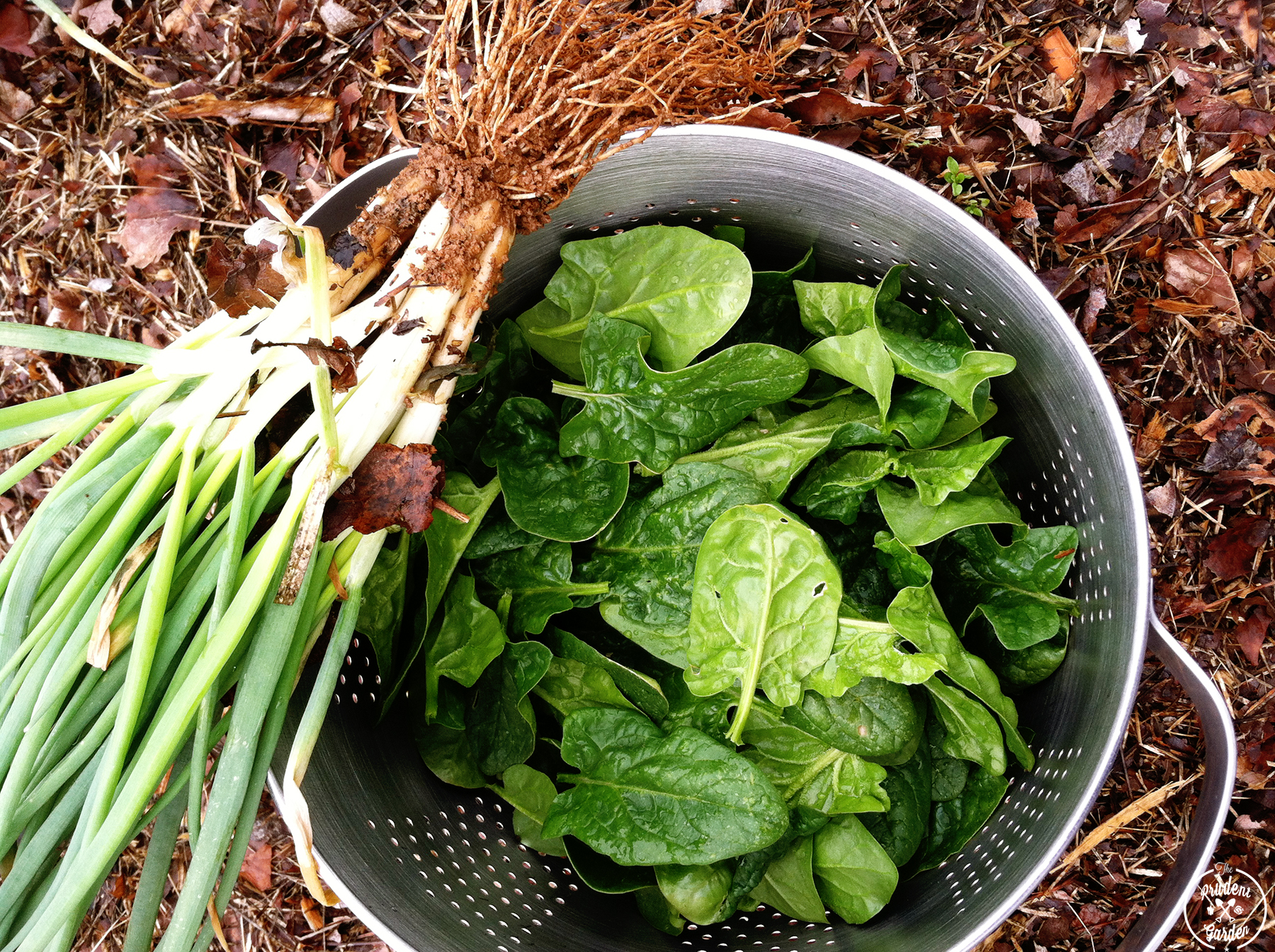
Easy Homemade Soba Noodle Ramen
Run soba noodles under cold water immediately after straining. In a small bowl combine tamari, chili paste and rice vinegar. Set aside. To a large pot or wok add your sesame oil over medium high heat. Add garlic, ginger, bell pepper and carrot and cook for 5-7 minutes. Stir in bok choy and cook until ends wilted.

Zaru Ramen Noodles, Soba Noodles Stock Photo Image of bamboo, green
Mix 3 tbsp green onion (s), 1/2 tbsp ground sesame seeds and 1 pinch black pepper together in a bowl. When the noodles have 1 minute left of cooking time, place the covered bowls with tare in the microwave and heat for 1 minute on 600W. Take the bowls from the microwave and remove the plastic wrap.
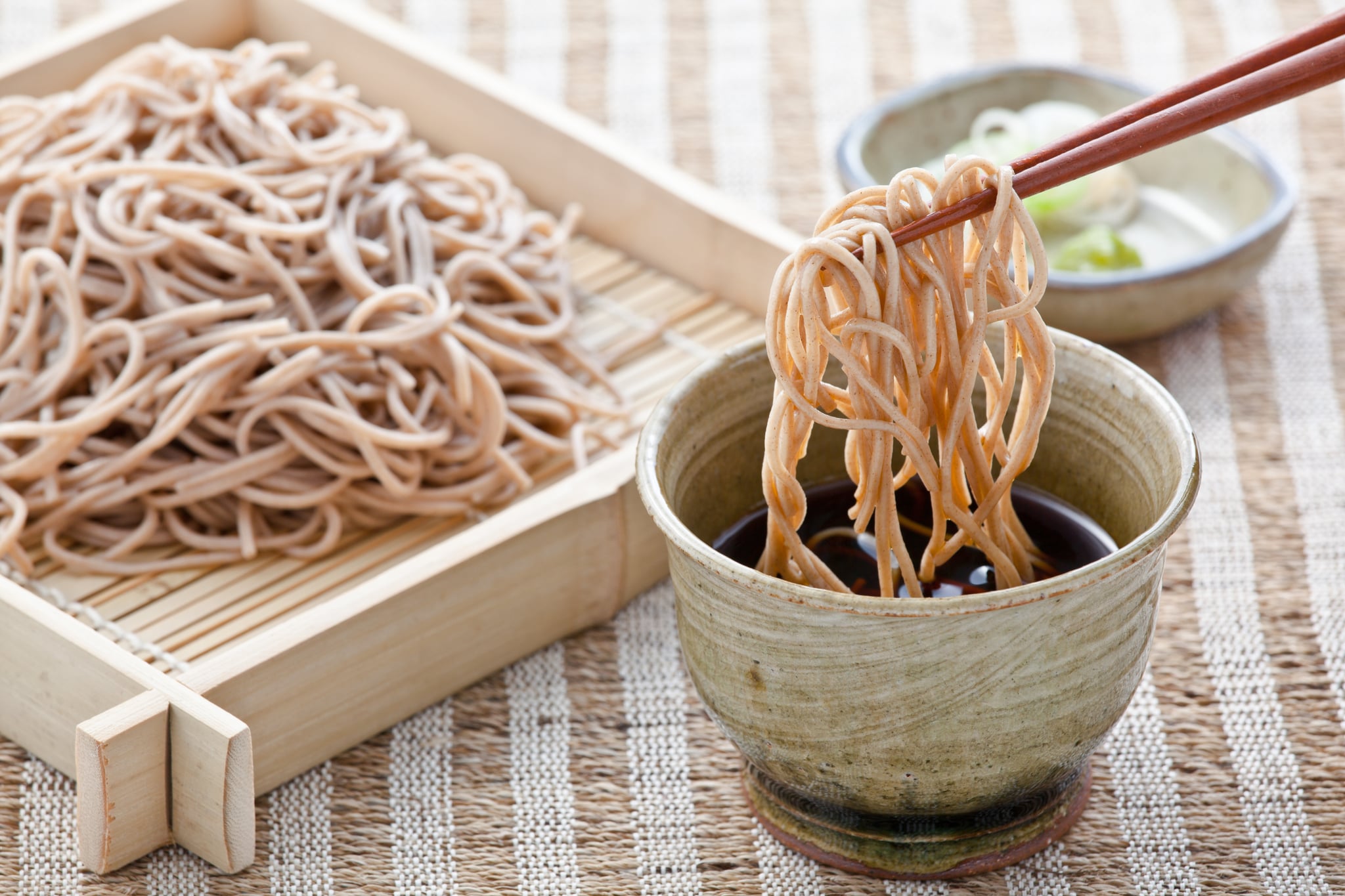
Soba From Ramen to Udon An Asian Noodle Primer POPSUGAR Food
Heat oil over medium-high heat in a wok or skillet. Add napa cabbage, shiitake mushrooms, carrot strips, and a sprinkle of salt. Stir constantly for 2-3 minutes. Stir in garlic and ginger for 1-2 minutes. Add bell pepper and white part of the green onion stir-frying for 2-3 minutes until just tender but still crisp.

Soba Ramen is Buckwheat Noodles, Japanese Style Food. Stock Photo
Try the following: Bring a pot of lightly salted water to a boil. Fill a large bowl with ice water and set aside. Boil the soba noodles for three minutes or until tender. Drain noodles in a colander and set the strainer in ice water. Toss the noodles to cool and drain. Shake out excess water and transfer noodles to a bowl.
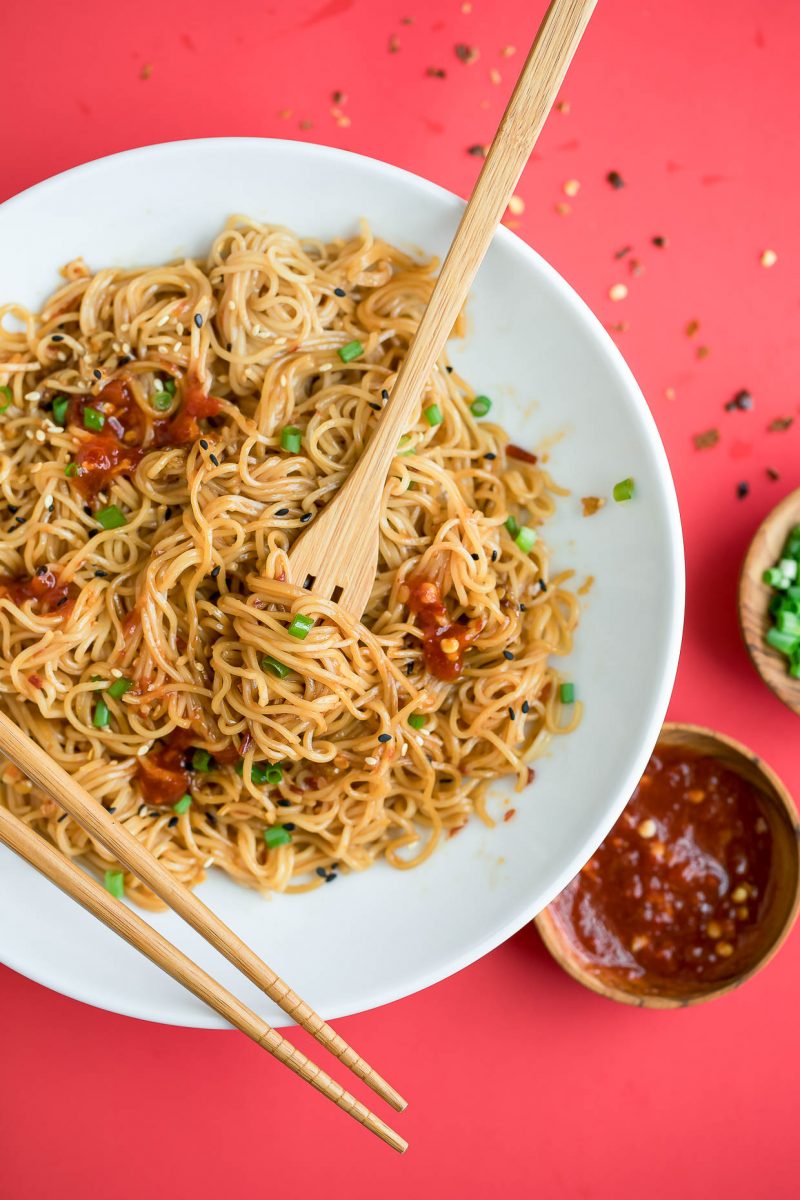
Spicy Sesame Ramen Noodles Peas and Crayons
Ramen(ラーメン) is searched for about 3x more than udon (うどん)and soba(そば) in Japan. We can see that ramen (blue line) is searched for about three times more often than udon (red line) or soba (yellow line). Udon and soba are nearly identical, although udon has a slight edge overall.
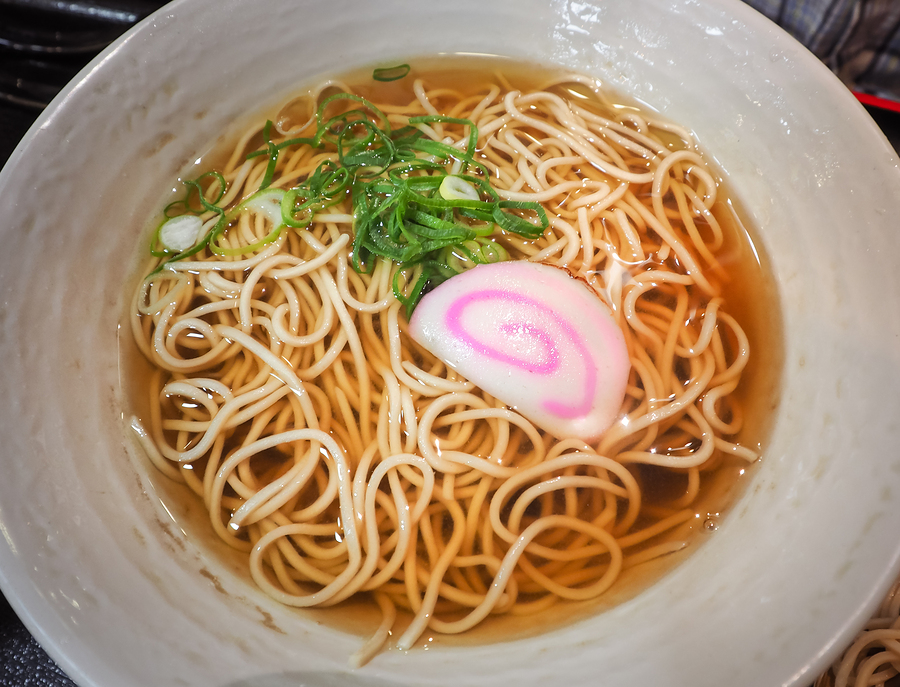
Japanese Soba noodle ramen in ceramic bowl, Japanese food Osaka
Noodles are also an important part of Japanese cuisine. Not only are they a Japanese staple, but different types of noodles are also enjoyed for certain celebrations and during specific seasons. Ramen, soba, and udon noodles are some of the most recognizable Japanese noodles. These noodles are amazing when enjoyed fresh, but they can also be found dried in supermarkets and convenience stores.

What’s the Difference? Soba, Udon, and Rice Noodles Udon noodle soup
The noodles. Soba noodles are around the same thickness as ramen noodles, but the two are very different. Soba is made from buckwheat flour which gives it a distinctive brown colour, and has a much softer, less elastic texture. They are excellent at soaking up broth, flavouring every millimetre of the soba noodle. Preparing to take the plunge.

Easy Homemade Soba Noodle Ramen
Mazesoba (まぜそば), or what we often call the Taiwan-style mazesoba (台湾まぜそば) or sometimes mazemen, translates to 'mixed noodles' in Japanese. It is a soup-less variety of ramen originated in Nagoya city. This ramen is composed of thick chewy noodles, ground pork mixture, and a variety of toppings such as green onions.
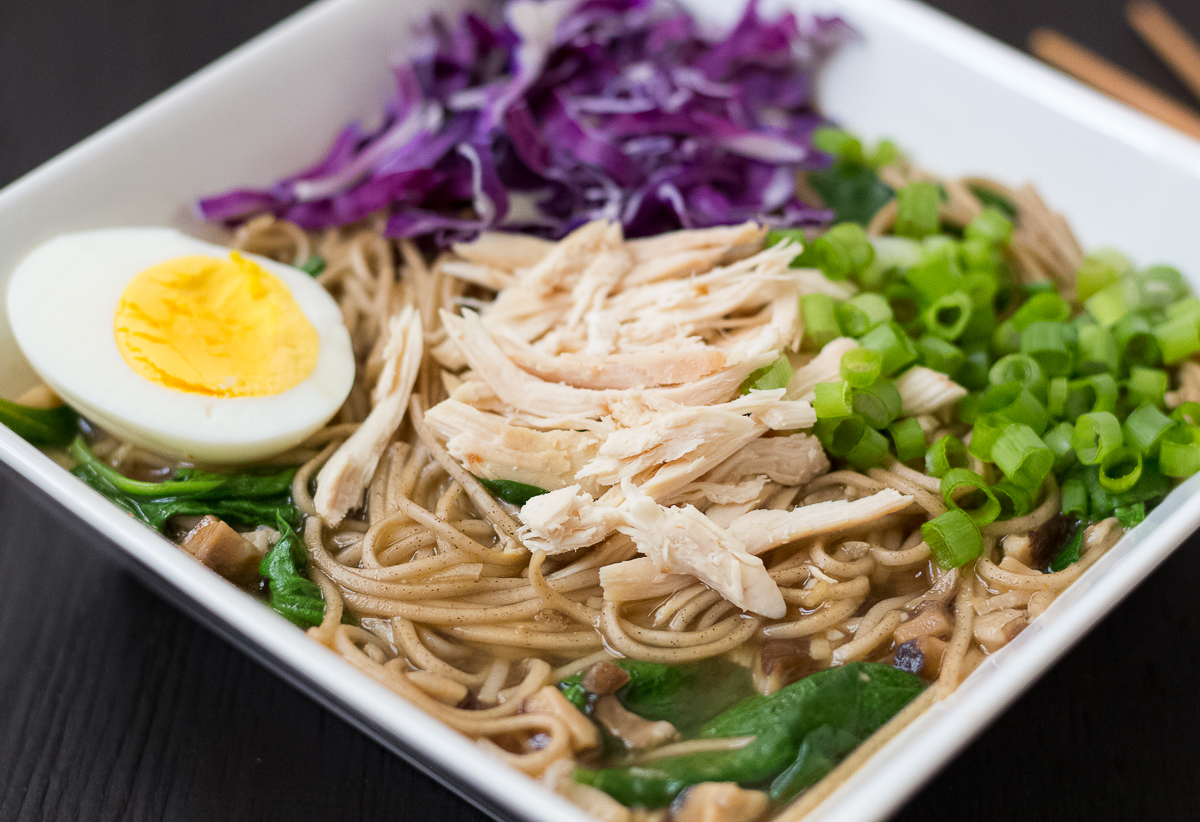
Spicy Ramen Soup with Soba Noodles Lauren Sharifi Nutrition
4. Soba and ramen both have fish cakes. A fish cake is formed by solidifying fish paste into different shapes. Soba has kamaboko, and ramen has narutomaki. They are both made by steaming fish paste. 5. Soba and ramen has green onions. Chopped green onions add some spiciness to these noodles.
[INSTANT]Soba Noodles Ramen from 711 Japan r/ramen
Udon noodles are the most different looking and tasting of the three. Udon noodles are also made with wheat, but that is where the similarity with ramen noodles ends. It comes in a white colour and is much thicker than both ramen and soba noodles. It's also got a chewy texture, much chewier than ramen. Most udon dishes are relatively simple.
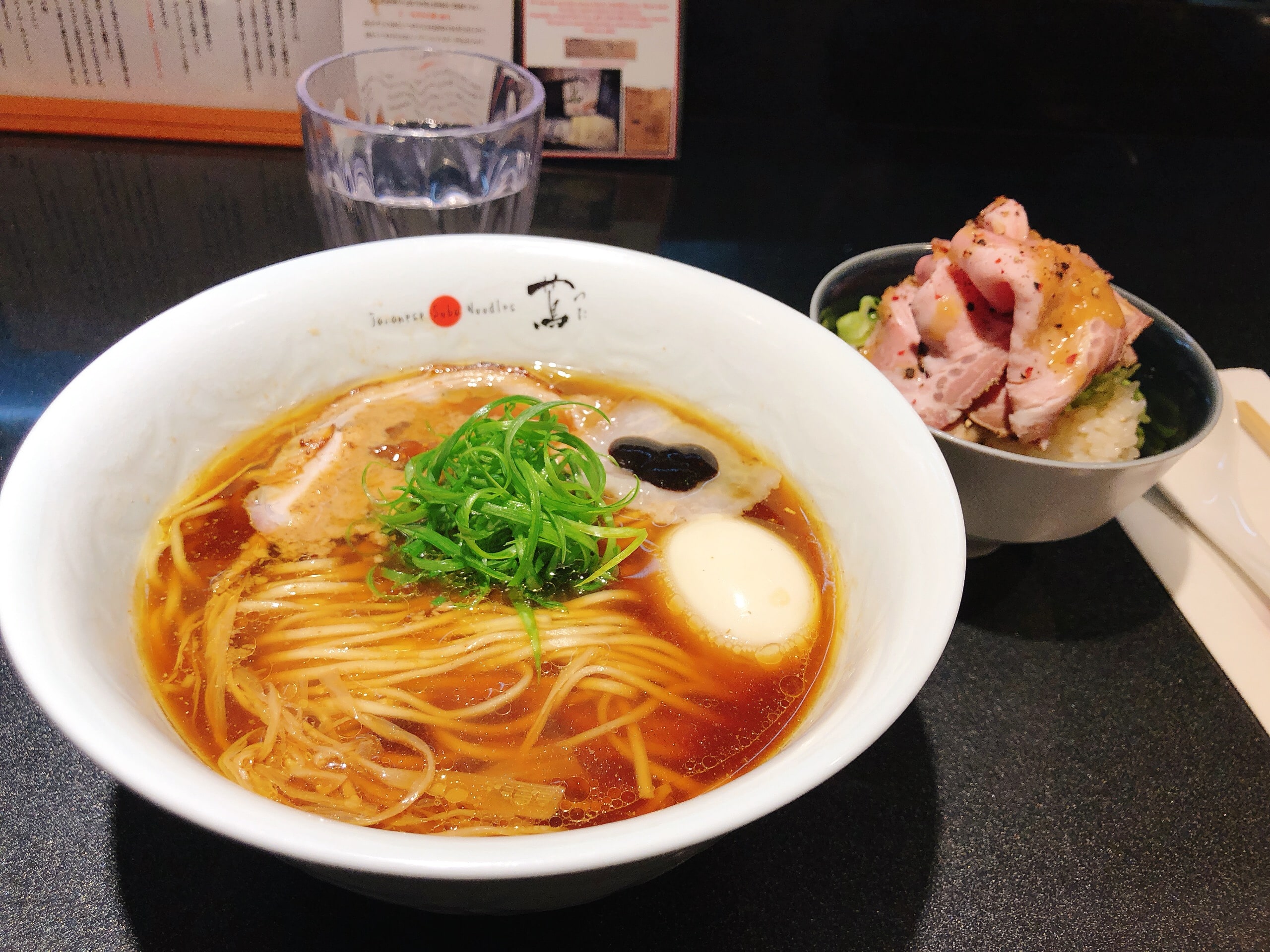
Tsuta Japanese Soba Noodles World’s First Michelin Starred Ramen in
Soba noodles are made from buckwheat flour, while ramen noodles are made from wheat flour. This means that soba noodles have a nutty flavor and firmer texture, while ramen noodles have a softer texture and are served in a savory broth with toppings. 2. Broth. Another major difference between soba and ramen is the broth.

Easy Homemade Soba Noodle Ramen
Cook 2 portions ramen noodles according to the instructions on the packaging. Add half of the tare to each of the two bowls. (If you increase the recipe, divide accordingly.) Add 300ml of hot broth to each bowl and mix. Drain the water from the cooked ramen noodles and place an equal portion in each bowl.